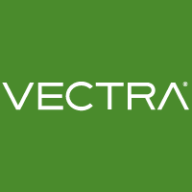

Fidelis Elevate and Vectra AI are prominent players in the cybersecurity industry. Vectra AI appears to have the upper hand with its advanced features that justify the cost, despite Fidelis Elevate being preferred for its pricing and support.
Features: Fidelis Elevate emphasizes robust network protection, seamless integration capabilities, and cost-effectiveness, which many users cite as beneficial. Vectra AI, on the other hand, is known for its advanced threat detection, comprehensive AI functionalities, and deeper threat analysis that many users find to be more encompassing.
Room for Improvement: Fidelis Elevate needs to address issues related to scalability, complex configuration, and usability improvements. Users report more critical issues with these aspects compared to Vectra AI. Vectra AI faces challenges with reporting, analytics gaps, and requires some refinements, though users note these as less concerning than those of Fidelis Elevate.
Ease of Deployment and Customer Service: Fidelis Elevate provides a straightforward deployment process, though some users mention a steep learning curve. It offers positive customer service experiences. Vectra AI requires expert handling for deployment, but its responsive support is frequently praised. Fidelis is viewed as having more accessible deployment, whereas Vectra AI advantages come post-deployment.
Pricing and ROI: Fidelis Elevate is noted for its lower setup costs, offering a compelling ROI, especially for budget-conscious users. Vectra AI, though priced higher, delivers significant value due to its extensive security features, suggesting a worthwhile ROI. Users perceive Fidelis as more budget-friendly, while Vectra AI is considered to provide better long-term value.
Workload reduction on the SOC side is now 100% lighter than previously.
The support is quite reliable depending on the service engineer assigned.
When I create tickets, the response is fast, and issues are solved promptly.
Customer support receives a rating of nine out of ten due to being very supportive and responding quite efficiently.
Vectra AI is scalable because it can work through different kinds of solutions and is compatible with all kinds of cloud solutions.
ExtraHop's ability to decrypt encrypted data is a feature that Vectra AI lacks.
A native CMDB-like feature and risk scoring would be a big advantage.
All threats, including hacking attempts, should be comprehensively addressed.
Vectra is cheaper in terms of pricing and features compared to Darktrace.
It is very acceptable when you compare it with Darktrace, for example.
We now experience only two to three hours of downtime, whereas without Vectra AI and other tools, our downtime would exceed 48 to 72 hours.
Attack Signal Intelligence helped reduce irrelevant alerts by 80% to 90%, with metrics showing a 100-plus reduction in investigation workloads and roughly saving about 55,000 hours of investigation time.
There are extensive out-of-box detection capabilities.
| Product | Market Share (%) |
|---|---|
| Vectra AI | 13.3% |
| Fidelis Elevate | 1.8% |
| Other | 84.9% |

| Company Size | Count |
|---|---|
| Small Business | 6 |
| Large Enterprise | 2 |
| Company Size | Count |
|---|---|
| Small Business | 9 |
| Midsize Enterprise | 10 |
| Large Enterprise | 29 |
Fidelis Elevate integrates network visibility, data loss prevention, deception, and endpoint detection and response into one unified solution. Now your security team can focus on the most urgent threats and protect sensitive data rather than spending time validating and triaging thousands of alerts.
Vectra AI enhances security operations by pinpointing attack locations, correlating alerts, and providing in-depth visibility across attack lifecycles, ultimately prioritizing threats and improving incident responses.
Vectra AI integrates AI and machine learning to detect anomalies early and supports proactive threat response. Its features like risk scoring, alert correlation, and streamlined SOC efficiency are supplemented by integration with tools like Office 365. Users highlight integration, reporting, and customization challenges, alongside limitations in syslog data and false positive management. They seek enhancements in visualization, UI, TCP replay, endpoint visibility, and tool orchestration, with requests for improved documentation, licensing, and cloud processing innovation.
What are the key features of Vectra AI?In industries like finance, healthcare, and critical infrastructure, Vectra AI is crucial for threat detection and network monitoring. Entities use it for identifying anomalous behaviors and enhancing cybersecurity by responding to network activities and analyzing traffic for potential breaches. It operates on-premises and in hybrid cloud settings, enabling threat detection without endpoint agents and supporting compliance and policy enforcement.
We monitor all Network Detection and Response (NDR) reviews to prevent fraudulent reviews and keep review quality high. We do not post reviews by company employees or direct competitors. We validate each review for authenticity via cross-reference with LinkedIn, and personal follow-up with the reviewer when necessary.